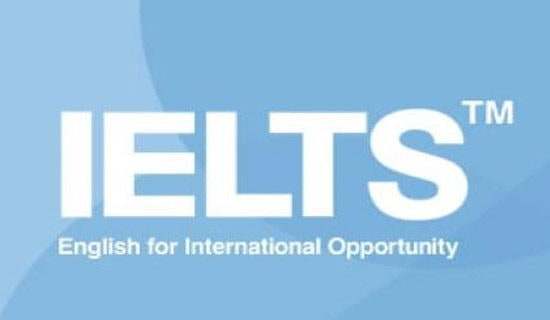- ���P(gu��n)���]
�P(gu��n)����˼�и��ɿ������Ć��}
����Will my accent make a difference?

����This is one of the most common pronunciation questions. Quite simply the answer is that accent is not actually marked in either test.
����Of course if you have a British, American or Australian accent your pronunciation will be much clearer and easier to understand (regardless of where your examiner comes from). Some students believe that they will lose marks if they use an American accent or in IELTS or a British accent in TOEFL, this is not true.
����If we return to the marking system, in IELTS the highest pronunciation score is Band 8 – to achieve this score you need to produce some kind of accent “similar to native speaker” (but any kind of native speaker is acceptable). TOEFL Speaking Level 4 does not require an accent – you just need to be “understandable”. So again it is clear that if you have a beautiful British or American accent you will be given more credit for this in IELTS than in TOEFL.
����To summarize all of this we can conclude that if you really believe that you have excellent spoken English you will be rewarded more in terms of scores with IELTS.
����Writing
����I think it's true that with the Writing Tests, IELTS and TOEFL are quite similar.
����The obvious similarity is that both exams have two writing questions and they are both similar in length although TOEFL answers need to be slightly longer.
����Again, it must be said that these are language tests and they are testing your ability to produce good quality written English.
����Many students seem to focus too much attention on the “whole answer” and forget that what is really being marked is your ability to produce written sentences.
����A detailed analysis of the marking system does reveal some differences. TOEFL scores in writing are more focused on your ability to write in relation to the task, so again we see that TOEFL is more academically inclined. IELTS writing scores are focused less on the task and more on the quality of the language produced.
����One important thing to remember for both IELTS and TOEFL is that there is never one “correct way” to answer a question.
����Look at the following example questions��
����The increase in the use of technology in our lives is having a negative effect on society. Do you agree or disagree? (IELTS Academic Task 2)
����Technology is having a negative effect on our ability to communicate. Do you agree or disagree? (TOEFL Independent Writing Question)
����Students often come to me with questions like; “Should I take one side or discuss both sides?” “Should I write two main ideas or more?”
����You must understand that in both tests the actual format of your answer of your answer is not being marked.
����For both questions there is actually a lot of freedom in the way that you write your answer. It would be perfectly acceptable in both IELTS and TOEFL to produce the following styles of answer.
����Answer A����Agrees (or disagrees) with the answer and produces two main ideas to support your opinion.
����Answer B����Agrees (or disagrees) with the answer and produces three main ideas to support your opinion.
����Answer C����Agrees (or disagrees) with the answer and produces four main ideas to support your opinion.
����Answer D����Agrees and disagrees with the question statement, produces one agree idea and one disagree idea.
����Answer F����Agrees and disagrees with the question statement, produces two agree ideas and one disagree idea.
����As you can see there are so many different ways to answer these questions and they are all as good as each other. There is no “standard correct way” to answer any of these questions.
����Whichever style of answer you choose to write, just remember the following; use good quality sentence structures (a variety of different structures); a good range of complex vocabulary; keep the ideas directly relevant to the question.
����In relation to scores, again the levels are slightly different. The highest score in TOEFL is level 5 and this is approximately the same as an IELTS Writing Band 7. To achieve the higher scores in IELTS (Band 8 and 9) your answer needs to be almost perfect in terms of language quality. You can achieve a level 5 in TOEFL with quite a lot of mistakes in your answer.
����In summary, we have seen that IELTS is more about language and less about tasks. TOEFL is centered on language in relation to academic tasks. So which test is easier – my only advice would be to try two complete sample tests and decide for yourself – some people prefer IELTS others find TOEFL easier.
����˼�и��ɿ������Ć��}�����P(gu��n)���£�
�и���˼�ɿ��Q���03-30
�Ĵ�����֪����W(xu��)��˼�ɿ��c�и��ɿ���(bi��o)��(zh��n)03-30
��μ����и��ɿ�03-30
�и��ɿ�����;����Щ12-02
�\Մ�o�и��ɿ�����03-30
���P(gu��n)��˼�ɿ���ԃ�ĕr(sh��)�g03-29
��˼�ɿ���ԃ���E�����ӵ�03-29
��˼�ɿ����֪12-10